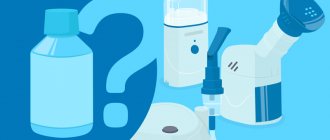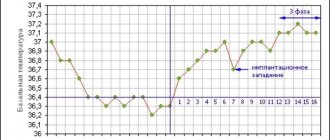Why do people resort to dietary supplements?
Historically, people have always used herbal medicines to treat diseases and viruses, relieve fevers and heal wounds. Natural remedies can relieve pain, improve digestion, and act as relaxants or stimulants. Having studied some plants, scientists came to the conclusion that sometimes their effectiveness is no worse than that of medications, but usually you don’t have to worry about possible side effects. This was the reason for the creation of pharmacological products called dietary supplements. But what is it really? What is hidden behind the famous abbreviation dietary supplement? And are these substances as harmless as is commonly believed?
The effect is unpredictable
Go ahead. Let's assume that you are lucky on all fronts. The dietary supplement turned out to be of really high quality, and the declared effect is there: you become more energetic, cheerful, and look great. How do you know that you are not developing liver, kidney or pancreas disease at this time? Or is the process of formation of gallstones not progressing? All these organs can remain painless for a long time, even to the point of complete failure. And then an urgent transplant will be required and, if it happens, months of rehabilitation.
We would like to draw your attention: dietary supplements are not tested for side effects. Therefore, you cannot know what the outcome of taking a particular nutritional supplement will be.
A woman took a turmeric supplement to prevent a stroke and developed hepatitis. A 71-year-old woman from Arizona in the United States took a turmeric supplement to prevent a stroke and developed autoimmune hepatitis.
Dietary supplement, what's in your capsule?
Content:
- Why do people resort to dietary supplements?
- Dietary supplement, what's in your capsule?
- Types of dietary supplements
- What should you remember when taking dietary supplements?
- What are the benefits of dietary supplements?
- How do dietary supplements differ from medications?
- When to think about supplements
- Deficiency and excess of bioactive substances
- Efficiency of biosubstances
- The most popular components of dietary supplements
The raw materials for most of these drugs are extracts from a wide variety of organic and inorganic substances. But let us immediately note that this, at least, should be the case ideally. But since dietary supplements are not included in the list of substances whose quality is strictly controlled by law, the composition of most of them is solely at the discretion of the manufacturers. In this article we will talk about dietary supplements, so to speak, the right ones, manufactured in compliance with technology and exclusively from substances beneficial to humans.
The components of biologically active drugs can be a variety of substances. Depending on the function assigned to the dietary supplement, it may contain different types of lipids, proteins and carbohydrates, vitamins and minerals, enzymes, fiber, bee products and plant extracts. They can play the role of probiotics and other substances beneficial to humans.
Where can healthy people get nutrients?
The substances the body needs can be obtained with a healthy, balanced diet. And this is the best option, because vitamins and microelements from food are better absorbed.
In addition, virtually each of the products contains many more different important substances: proteins, fats and carbohydrates of various types, phytonutrients, etc. Over the entire period of evolution, the human body has adapted to absorb everything necessary for functioning from food.
If you suspect that you have any deficiencies or other reasons for taking dietary supplements, consult a doctor (namely a doctor, not a nutritionist or health coach from social networks). In all other cases, just build your diet as varied and balanced as possible. For example, you can follow these simple recommendations from the Government of Canada.
Author: Alena Khripkova, general practitioner, cardiologist, functional diagnostics doctor
Literature
1. Effects of Nutritional Supplements and Dietary Interventions on Cardiovascular Outcomes, Annals of Internal Medicine 2. Common Herbal Dietary Supplement—Drug Interactions—American Family Physician 3. Daily iron and folic acid supplementation during pregnancy, World Health Organization 4. Nutritional interventions update: vitamin D supplements during pregnancy, Guideline, World Health Organization 5. Mildly Elevated Liver Transaminase Levels: Causes and Evaluation, American Family Physician 6. Federal Law “On the Quality and Safety of Food Products” dated January 2, 2000 N 29-FZ (latest edition) / ConsultantPlus 7. Caitlin Mason, Liren Xiao, Ikuyo Imayama, Catherine Duggan, Ching-Yun Wang, Larissa Korde, Anne McTiernan, Vitamin D3 supplementation during weight loss: a double-blind randomized controlled trial, The American Journal of Clinical Nutrition, Volume 99, Issue 5, May 2014, Pages 1015–1025, https://doi.org/10.3945/ajcn.113.073734 8. Ruben Manuel Luciano Colunga Biancatelli, Max Berrill & Paul E. Marik (2020) The antiviral properties of vitamin C , Expert Review of Anti-infective Therapy, 18:2, 99-101, DOI: 10.1080/14787210.2020.1706483 9. Associations of Omega-3 Fatty Acid Supplement Use With Cardiovascular Disease Risks, Theingi Aung, Jim Halsey, Daan Kromhout, JAMA Cardiol. 2021. 10. Zinc, folic acid supplement does not improve male fertility, NIH study suggests, National Institutes of Health 11. Vitamin supplements and cancer risk, Cancer Council NSW
Types of dietary supplements
All biologically active additives are usually divided into 2 groups: nutraceuticals and parapharmaceuticals, or bioregulators. The first are drugs that restore the deficiency of certain substances in the body. Taking these dietary supplements is justified for people whose diet is far from balanced. Substances from the second group affect the functioning of organs and systems. As a rule, they are taken for prevention or as an adjuvant in parallel with traditional therapy. Although manufacturers often combine the properties of both types in one preparation.
Fish fat
In addition to eating fish several times a week, most adults can benefit from taking fish oil, which is high in the omega-3 fatty acids eicosapentaenoic acid (EPA) and docosahexaenoic acid (DHA). In our bodies, EPA and DHA act as precursor chemicals that help reduce inflammation.
Don't forget: Inflammation is common and is associated with a variety of common and serious health conditions, from arthritis and asthma to cancer and heart disease. Even conservative medicine in some cases supports taking fish oil. Today, the American Heart Association recommends that patients with coronary artery disease take 1 gram of fish oil daily .
The National Institutes of Health also calls it beneficial, not only in treating patients with heart problems, but also in normalizing elevated triglyceride levels and high blood pressure . These three indications are rated A, meaning the National Institutes of Health considers these recommendations to be backed by strong scientific evidence .
The use of fish oil in the primary prevention of heart disease and the treatment of rheumatoid arthritis is rated B (there is good evidence to support its use), while the use of fish oil for another 27 diseases, from cancer prevention to depression and schizophrenia, is rated C (there is some evidence, but further study required).
Fish oil is rich in anti-inflammatory omega-3 fats. Most people these days consume many more calories from sources of inflammatory omega-6 fats. Many years ago, before the advent of processed foods, the human diet contained almost equal amounts of omega-3 and omega-6 fats. Today, it is not uncommon for people to consume 25 times more omega-6 fats than omega-3 fats, which increases inflammation in the body and increases the risk of developing related diseases.
As we discussed in Chapter 2, inflammation underlies every stage of the process that leads to the formation of unstable plaque in the arteries and heart attacks. It also causes many other diseases such as Alzheimer's disease, cancer and arthritis. Limiting your intake of omega-6 fats (mainly vegetable oils) and increasing your intake of fish oil through food and supplements can help restore balance.
There is currently no RDA for omega-3 fats, but the National Institutes of Health recommends healthy adults consume 4 grams of these fats per day. Our ONA for EPA is 750-3000 mg per day and for DHA is 500-2000 mg per day. Vegetarians can get 2.5 grams of omega-3 fats with every teaspoon of flaxseed oil .
What are the benefits of dietary supplements?
Bioactive supplements are not medications, so the principles of taking them are also different.
Meanwhile, they can be useful for the prevention of certain diseases. They are often taken as a means to strengthen the immune system or as an additional source of vitamins. Dietary supplements made from natural ingredients can be an effective addition to the complex treatment of chronic diseases.
In addition, bioactive additives are capable of:
- regulate the metabolism of nutrients;
- promote hematopoiesis and proper blood clotting;
- play the role of an antioxidant;
- some have properties similar to hormones;
- influence enzymatic processes;
- influence cellular respiration;
- activate the reproductive abilities of the body;
- promote the formation of connective tissue;
- remove toxins;
- strengthen the heart and blood vessels;
- strengthen immunity;
- maintain electrolyte balance;
- promote stability of acid-base balance;
- beneficial effect on intestinal microflora.
Vitamin D
It seems that almost every day there is new research showing the benefits of high levels of vitamin D in the body . There is such irrefutable evidence of this that even traditional medicine doctors have paid attention to vitamin D, measure its levels in their patients and recommend taking it as a food supplement.
We have found that in addition to taking vitamin D daily as part of a vitamin and mineral supplement, most people benefit from taking this vitamin as a stand-alone supplement. Vitamin D is the only one for which you can determine your ONA level by taking a blood test for its content .
If your 25(OH)D level is 20 or less, we suggest starting to take 5,000 IU of vitamin D per day. If the level is 21-30, start taking 2000 IU daily, and if in the range of 31 to 40, then 1000 IU accordingly.
After three months, take the test again and revise the dose of vitamin D depending on the result. Don't be surprised if it takes six months or more to reach optimal levels of this vitamin in your blood.
Typically, once the desired level of vitamin D in the blood is reached, it is necessary to take 1000-2000 IU per day to maintain it and periodically monitor the level to prevent excessive accumulation in the body. Vitamin D3 (cholecalciferol) is thought to be more effective than vitamin D2 (ergocalciferol), although some recent studies suggest they are equally effective.
Vitamin D supplementation has long been a concern due to possible toxicity, since it is fat soluble and can be stored in adipose tissue, and excess can cause elevated blood calcium levels. However, more recent studies indicate that this is rare and the current RDA (400 IU) is too low.
A natural way to increase vitamin D levels is by direct exposure of the skin to sunlight. Exposure to sunlight allows the body to synthesize vitamin D from cholesterol found in the skin, but the film formed by sunscreen prevents this conversion.
There is not enough vitamin D in food, but it is added to milk and some other so-called fortified foods.
The authors of the book also go through a number of additional dietary supplements that may be useful for people over 40-50 years old, but you can read these details in the book itself. As a conclusion, we will place a table with a recommended approximate regimen for taking dietary supplements.
SAMPLE SCHEMES FOR INDIVIDUALS TAKING
Our recommendations regarding ONA standards reflect the general principles of taking dietary supplements, and, of course, cannot be called universal. Individual needs depend on many factors, including gender, age, weight, occupation, stress level, health status and genetic predispositions .
To help develop the most effective regimen for taking dietary supplements, we bring to your attention the following sample programs that can be considered basic. Ask your doctor to help you get regular screenings and tests to ensure you are taking the correct doses of the supplements you need.
These recommendations provide a basic dietary supplement program that will help protect against the changes associated with aging. But that's not all. Other factors may influence the need for additional protection. For example, if your lifestyle involves exposure to more than normal amounts of free
radicals, the overall intake of antioxidants should be increased. If you live in the mountains, where the air and water are clean, and you grow your own vegetables organically, your needs will be lower than those who live in a big city and are exposed to the high stress of working in an office next to a busy highway.
How do dietary supplements differ from medications?
The first and most important difference between bioactive additives and drugs is the composition of both drugs: the raw materials for bioactive additives, as a rule, are natural substances.
Secondly, both drugs differ in their operating principles: dietary supplements give a milder effect and, as a rule, do not have side effects. In addition, they do not accumulate in the body and do not have a toxic effect. Considering these nuances, it becomes clear why the body more easily tolerates the effects of dietary supplements than traditional medicines.
Dietary supplements do not undergo clinical trials
Let's assume that everything is fair and the composition matches the content. But how do you know what this supplement will do to your body? You know what side effects are caused by painkillers, antipyretics and other pharmaceutical products that have undergone clinical trials. Because these effects are described in the instructions for the medications. Based on them, you can predict your body's reaction.
How can you predict what will happen to your gastrointestinal tract or cardiovascular system if the drug has not undergone any research? Dietary supplements are simply “collected” from potentially useful substances and based on this they claim their “life-giving power.” These kind of “magic pills” that will “clean” the liver, tidy up your nails, skin and hair...
It would be great if nutritional supplements actually worked - we would all walk around with a full head of hair, shining with happiness and health. But in fact, no dietary supplement solves the problem if it really exists in the body.
TOP plants with proven hepatotoxicity. They are dangerous for your liver. Herbal supplements can cause toxic hepatitis, acute liver failure and even death.
When to think about supplements
Despite the fact that there is no clear opinion in the world about the effectiveness of biological products, in some cases, even doctors recommend that patients take a course of capsules on a natural basis.
As a rule, these substances are used when it is necessary to restore the vitamin-mineral balance or saturate the sick body with certain nutrients. Also, high-quality dietary supplements are effective for strengthening the immune system, accelerating metabolism, normalizing intestinal microflora, and as a substance that cleanses the body of toxins and poisons. Recently, dietary supplements for weight loss and regulation of metabolic processes in the body have become especially popular. It is also worth noting that the composition of many dietary supplements is a cocktail of extremely beneficial substances for humans, playing the role of powerful antioxidants.
Given such a wide functional range of dietary supplements, almost everyone and at any age can take them. The main thing is to choose the right dietary supplement.
It is also worth taking dietary supplements:
- pregnant women;
- children during intensive growth;
- for problems with the musculoskeletal system;
- for diseases of internal organs;
- during periods of increased emotional stress;
- in old age.
Online bidding is inappropriate
All kinds of dietary supplements are at the peak of popularity today.
If you believe the statistics, in the European Union more than half of the residents accept them, in the USA - over 80%, in Japan this figure reaches 90%. But in the CIS countries the numbers are much more modest - up to 10%. This is partly due to history: while in the West they have been familiar with dietary supplements for about 70 years, they came to us only in the late 1990s. And the supplements gained notoriety: the market was flooded with counterfeits, and dietary supplements were sold, building network marketing pyramids and convincing gullible citizens to spend their last savings on supposed miracle pills. Today, dubious trading schemes are becoming less and less common. But they exist. For example, this year in St. Petersburg, a court heard a criminal case against members of an organized criminal community accused of selling dietary supplements to elderly people under the guise of medicine. Having the personal data of elderly citizens, gang members, posing as medical specialists, called them and sold dietary supplements under the guise of innovative expensive medicines. In the “black” accounting department, operatives counted more than 500 defrauded.
While such stories are becoming fewer and fewer offline, in the virtual world the industry of innovative pseudo-medicines is thriving. For example, last year the Ministry of Information restricted access to sites where the drugs “Hypertonium” and “Uretramol” were advertised. In the first case, buyers were assured that the product would “reduce blood pressure to the age norm without chemicals or side effects.” It sounds convincing: the drug was created by specialists “from the Western Academy of Sciences”, it is “officially recommended by the World Heart Federation for the treatment of hypertension.” Needless to say, these institutions simply do not exist.
Tatiana Mokhort, Head of the Department of Endocrinology, Belarusian State Medical University
,
professor, doctor of medical sciences
, says that the trend is alarming:
“Unfortunately, we encounter situations when you open the Internet, recommendations pop up, from which you will be immediately cured. For example, they cure diabetes in 10 days. Once I tried to call and find out how much it costs in terms of money, what guarantees I have. And I asked the most difficult question for my respondent - where can I read about this medicine. The course dose of the drug I asked about cost more than $1,000. I was offered to read about it in the media, but I need scientific publications. I tell the consultant: if I pay that kind of money, I’m ready to read it even in Chinese. They hung up.
By the way, we are prohibited from promoting dietary supplements as a remedy for a specific disease. The inscription “to improve the function of something” is allowed, but without indicating medical indications. However, on the Internet, violation of this rule occurs all the time. Tatyana Vyacheslavovna explains that the situation when dietary supplements are not recommended by anyone except virtual “specialists”, and are recommended according to a nosological formula, is a problem:
— Nowadays the dietary supplement “Shuganorm” for the treatment of diabetes mellitus is very widely advertised. Nobody knows exactly what it is. But some references are given, some names of doctors are named that do not exist in nature. People listen and believe. Some begin to ask questions to specialists, others immediately take such dietary supplements. As a result, a patient with diabetes loses time in terms of the possibility of adequate treatment and compensation of carbohydrate metabolism. The disease develops further.
This market situation harms businesses that operate honestly. Rugia Kengerli, director of a large pharmacy chain
, explains: after such stories, people are very distrustful of dietary supplements. And this is not surprising:
Deficiency and excess of bioactive substances
Perhaps many people are interested in the benefits and harms of dietary supplements. But even with this information, sometimes you can harm the body if you take drugs in the wrong dosage.
Thus, an excess of dietary supplements, as a rule, resembles ordinary poisoning. Nausea, vomiting, weakness, changes in body temperature, dizziness and even hallucinations. All this can occur against the background of excessive consumption of biological substances. In addition, it is possible to develop hypervitaminosis and excessive accumulation of other nutrients included in the supplement.
But the fact that the body lacks useful elements may be indicated by weakness, fatigue, dizziness, vitamin deficiency, problems with skin, hair, nails, spots in the eyes and other signs.
Efficiency of biosubstances
Bioactive supplements are very specific drugs. And in order to feel their effectiveness, 1-2 tablets taken from time to time are not enough. There are quite a lot of recommendations on how to make dietary supplements as effective and beneficial for humans as possible.
Firstly, most dietary supplements are not a miracle pill for a specific ailment. They have a comprehensive effect on the body, strengthening, if not all organs and systems, then at least functionally similar ones. But, at the same time, among the drugs offered, you can choose a supplement that is most suitable for a person at a certain stage of treatment or prevention. For example, after taking antibiotics, it’s a good idea to drink a dietary supplement that acts on the body like a probiotic. Or, after treatment with drugs whose side effects affect the liver or kidneys, you can take a biocourse with a cleansing effect.
As for dosages, for most biological products they are not strictly defined and vary depending on the needs (therapeutic effect or prevention). But still, you need to start taking an unfamiliar substance with small dosages, gradually increasing the daily norms.
In some cases, the timing of taking the drug matters, and to enhance its effectiveness, it is worth following certain recommendations. For example, most dietary supplements are recommended to be taken with meals. If this is a tonic drug, then it should be taken in the first half of the day. If it is a calcium supplement, then you should drink it before or after meals, maintaining a minimum 30-minute pause. It is important to store packages of tablets or capsules in a dark, dry place or even in the refrigerator in order to preserve the biological activity of the active substance as much as possible.
Healing affect
Minsk resident Alexandra is 23 years old.
Sasha learned about wonderful pills that help maintain beauty on the page of a popular fitness blogger. I also decided to “take some vitamins.” It turned out that almost everything offered had to be ordered from the American website. From the blogger as a gift - a promotional code for a discount. — I took a dietary supplement that increases learning ability, memory and intelligence. It was inexpensive, about $10 per jar,” the girl recalls.
After the first days of taking it, her health worsened:
“In the morning I began to shake, and later I started to feel pain in my stomach and my heart was tingling. I couldn't figure out what was wrong. Until I decided to stop taking the supplement. It became easier almost immediately.
Alexandra decided to look for reviews about the dietary supplement on the Internet. It turned out that she was not the only one having similar problems. The girl decided to warn the blogger that the product is not suitable for everyone. Wrote a personal message:
“It was read, but no answer, no reaction.” I wrote a comment under the post. A few hours later it was deleted and I was blocked. But another girl with similar symptoms managed to write to me. It seems to us that this should under no circumstances be hushed up.
Recently, BBC News published the story of American Jim McCants. Remembering his father, who died of a heart attack at the age of 59, at the age of 50 Jim took his health seriously: proper nutrition, exercise, giving up bad habits. Every day for several months he took a dietary supplement - green tea extract in capsules. The advertisement claimed that the product would improve heart function, prevent cancer and help you lose weight.
liberty-rb.ru
Some time later, McCants was admitted to the hospital with suspected cirrhosis of the liver. He urgently underwent a transplant of this organ. Now, four years later, the American also suffers from kidney disease and chronic abdominal pain. The man sued the company - a manufacturer of dietary supplements. He wants warnings about possible risks placed on capsule packaging.
Professor Herbert Bonkowski, head of the department of liver diseases at Wake Forest University, said that he knows of about 60 cases of people who took drugs with green tea extract who were hospitalized with cirrhosis of the liver: “If you don’t drink a lot of green tea, you nothing is in danger. People who consume the extract are at risk.”
The most popular components of dietary supplements
succinic acid
Bioactive supplements, which include succinic acid, affect the functioning of all cells in the body, stimulating their activity. This substance is a very strong remedy, therefore, in order to avoid an overdose, it is important to take a break from taking medications containing succinic acid.
Garlic
Preparations with garlic extract are useful for headaches and arthritis, as well as for cleansing blood vessels. Typically, dietary supplements containing garlic are oil capsules.
Seaweed
The most common component of bioactive additives is seaweed - kelp.
This brown-red sea plant is a rich source of iodine. Laminaria is important for the effective functioning of the thyroid gland and strengthening the immune system. This is an effective remedy for combating purulent inflammation. In addition, it is a source of other equally important components for health: magnesium, iron, zinc, cobalt, nickel, lithium. Together, they all have a positive effect on the functioning of the adrenal glands, genital organs, pancreas and other organs of the endocrine system. When choosing a dietary supplement based on kelp, it is important to know that this algae does not have the best effect on the body in case of kidney disease or blood clotting disorders.
Spirulina seaweed as a dietary supplement is important for cleansing the intestines, and is also an excellent source of protein (contains 20 times more protein than soy), which is absorbed by the body faster than proteins from animal products. In addition, it contains large reserves of iron, beta-carotene and some enzymes. This entire complex helps cleanse the liver and blood vessels.
Chlorella is also a popular component of dietary supplements. This algae is primarily used as a source of protein.
Fish fat
Dietary supplements, the main component of which is fish oil, are usually rich in polyunsaturated fatty acids. They stabilize blood pressure, strengthen blood vessels, and have a beneficial effect on the condition of the skin. Important for children's health, in particular for activating brain function and strengthening the visual organs.
Royal jelly
This substance contains amino acids essential for humans and many vitamins. Preparations based on royal jelly are used to treat the nervous system, enhance potency and strengthen the immune system. Dietary supplements of this type are used to treat anemia, exhaustion, and also to resolve adhesions. But high blood pressure and epilepsy are serious contraindications for the use of drugs containing these substances.
Pollen
This flower product can often be seen in the list of components of bioactive supplements. In particular, pollen is combined with rutin and protein. In this combination they are an excellent drug for strengthening blood vessels. Dietary supplements of this group are prescribed as prophylactics against strokes, heart attacks, and also to strengthen the eye vessels. Also effective for restoring potency and fighting infections. And for children, such drugs are useful during periods of intensive growth.
Best materials of the month
- Coronaviruses: SARS-CoV-2 (COVID-19)
- Antibiotics for the prevention and treatment of COVID-19: how effective are they?
- The most common "office" diseases
- Does vodka kill coronavirus?
- How to stay alive on our roads?
Meanwhile, it is important to consider that all bee products are strong allergens. True, pollen is one of the least dangerous.
Medicines vs dietary supplements: expert opinion
We talked about the difference between medicines and dietary supplements (biologically active food additives) and who controls their manufacturers with the head of the department for coordination of work in the field of circulation of medicines and medical devices of the Department of Technical Regulation of the Eurasian Economic Commission, Candidate of Medical Sciences Dmitry Rozhdestvensky. “You either have health or you don’t have it” - In advertising we often hear that a drug “is not a medicine.”
Why do they say that? —You can hear this phrase when advertising dietary supplements. The advertisement warns that the product “is not a medicine” in order to inform the consumer that this product, this product, will not have any therapeutic effect and will not help him with the disease. However, since advertising is intended to sell a product, it often creates in a person or exploits the false impression he already has that the dietary supplement can help him if he has any health problems. After listening to any advertising of dietary supplements, you need to clearly understand and firmly remember that these products are used exclusively for the purpose of correcting nutrition in healthy people; they do not have any therapeutic effect. But drugs are something that was created to combat human diseases, and their therapeutic effect must be proven before the drug receives permission for use.
—That is, medications can help you recover, but not become “healthier”?
-Exactly. It is impossible to improve health - it either exists and cannot be made “even healthier”, or it does not exist - and then this means that the person is sick. Let me give you an example of an analogy with pregnancy: if a woman is pregnant, then she cannot be made “even more pregnant.” According to the provisions of dietetics (rules for eating and drinking to maintain health), we must receive a certain amount of nutrients every day in the form of proteins, fats, carbohydrates and vitamins that are found in food. But there are conditions when a person is deprived of access to certain nutrients. For example, he does not have access to fruits or berries rich in vitamins and fiber (this is important for people on long sea voyages, in conditions of work in space orbit, when food delivery is difficult). Or the human body intensively consumes these nutrients (due to high physical activity, exposure to extreme climatic conditions, etc.) This need can be compensated for by dietary supplements - they are designed for this and contain, in essence, concentrated nutrients, mineral components and vitamins.
—What are vitamins for then? What category do they belong to?
—Only some of the vitamins can be classified as medicines. Most vitamins cannot be considered as true medicines; they can treat only one disease - vitamin deficiency, that is, a disease associated with the lack of one of the vitamins in the body (examples of vitamin deficiencies are scurvy (lack of vitamin C), rickets (lack of vitamin D), pellagra (lack of vitamin PP). For many vitamins, vitamin deficiencies have not been described at all and can only be simulated in laboratory conditions - therefore, the “healing power" of such vitamins is very ephemeral. An example is pantothenic acid (vitamin B5), widely advertised in dietary supplements, cosmetics and products. the closest to drugs can be considered only some of the fat-soluble vitamins (for example, A, D and K) and nicotinic acid or vitamin PP. These vitamins additionally have a number of proven effects: they increase blood clotting (vitamin K), participate in mineral metabolism and inhibit the development of osteoporosis (vitamin D), regulate cholesterol metabolism (vitamin PP), inhibit the proliferation of certain types of malignant tumors (vitamin A). Due to established traditions, manufacturers register vitamins as medicines, but often they are also registered as dietary supplements. In this case, the manufacturer releases them in smaller doses, compared to registration in the form of medicines. In any case, regardless of the form in which you are going to take vitamin preparations, it will be more useful if you consult with your doctor to make sure both the need for taking vitamins and the advisability of this. Otherwise, taking vitamins can become nothing more than “vitaminizing urine” - no matter how rude it may sound. The fact is that water-soluble vitamins (groups B, C and the like) are not able to accumulate in the body and any excess of them that enters the body in excess of the daily requirement is immediately excreted in the urine. Three vitamins - fat-soluble vitamins - A, D and K can accumulate in some organs, and their excessive intake can ultimately lead to health problems.
—Who controls the release of medicines and how?
—Each state maintains a register of medicines that are permitted for circulation on its territory. Everything that is written in the information about medicinal products - a special leaflet that is included in the packaging of the medicine - is not arbitrary or unfounded statements. For example, if manufacturers of beta-blocker drugs indicate that their drug can prevent myocardial infarction, arrhythmias, and lower blood pressure, then they have conducted clinical studies involving thousands of people, and as a result of the studies they found that people At risk, those taking beta blockers are less likely to have a heart attack than those not taking them. In addition to clinical studies, the drug undergoes strict constant quality control. Each series of manufactured medicinal products is subject to such control - the manufacturer and an independent control laboratory check the authenticity of the medicinal product, the compliance of the content of the declared amount of active substance, the presence of impurities in the medicinal product, as well as consumer properties (disintegration time of capsules/tablets, their dissolution, retention of properties for stated expiration date). Unlike medicines, dietary supplements do not undergo registration; they receive a hygienic certificate—a document stating that the drug is safe and the manufacturer has the right to produce it. No proof of effectiveness is required from the manufacturer. Constant independent quality control of dietary supplements is not mandatory.
“A medicine can be studied for 10 or 12 years”
—What does a manufacturer need to do if he wants to release and legally sell his product?
—In the case of dietary supplements, it is enough to simply release it and then undergo a safety check at the state sanitary service institutions. If the dietary supplement does not contain radionuclides, pesticides and does not cause death in laboratory animals, then the manufacturer only has to make a mock-up of the packaging and information sheet for the dietary supplement and it is ready for release. The manufacturer is not required to carry out any subsequent quality control of the manufactured dietary supplement in independent laboratories. Often, in the future, unscrupulous people begin to take advantage of such a loophole and begin to add undeclared compounds to them, drugs that the consumer does not even know about, believing that he is taking a harmless dietary supplement. As studies conducted in 2021 in the United States showed, more than 70% of dietary supplements that were on the market did not correspond to their initially stated composition - appetite suppressants were added to dietary supplements for weight loss, drugs that enhance erection were added to dietary supplements for potency, Dietary supplements for joints are anti-inflammatory drugs. One can only guess what proportion of dietary supplements that do not correspond to their composition are in circulation on our market; no research has been carried out on this issue, and control for confirming the authenticity of dietary supplements on it has practically not been developed.
With medicine, everything is more complicated. The manufacturer needs to conduct a series of studies: the drug is first taken by healthy people - this helps to find out that the body, in principle, will not suffer any irreparable harm associated with taking this compound. Then the same drug is studied on patients - the correct dosage is selected for a small group of patients, and efficiency and effectiveness are selected for a large group. Then the manufacturer must prepare a dossier for the drug series - describe the entire composition, technological process parameters and many more nuances. Each stage must be checked for process stability - i.e. the manufacturer proves that today and tomorrow capsules/tablets will be of the same quality. Then they control the quality of the medicinal product for compliance with the requirements of the state pharmacopoeia - a set of standards that indicate what level of quality the medicinal product should have. This analysis is performed for each batch of the drug, even if it is released every day. Let's look at the difference between dietary supplements and medications using blueberry-based medications as an example. Medicines containing blueberries undergo a full cycle of clinical studies, during which the manufacturer is obliged to confirm that all the effects they claim regarding the effect of the drug on vision actually occur when taking their medicine. The manufacturer must draw up a release recipe, describe each stage of production and ensure its stability. Day after day, when releasing the drug, he controls the capsules and confirms that they actually contain blueberry extract, in which the content of active ingredients - anthocyanidins - is strictly standardized. The dietary supplement manufacturer does not need to do anything like that. Having released a dietary supplement with blueberries, the manufacturer can place a non-standardized extract in it, where the content of anthocyanidins in each series of dietary supplements will be different. Subsequently, having passed hygienic certification, he can make changes to the composition of dietary supplements, which neither the sanitary supervisory authority nor the consumer will even know about. No testing of the effectiveness and efficiency of dietary supplements is carried out. After the manufacturer has completed all studies, the medicinal product goes to an expert institution, which gives an overall assessment of safety, quality and effectiveness. In Belarus it is the “Center for Expertise and Testing in Healthcare”. After an independent audit, the medicine is entered into the register and its use (that is, supply to pharmacies and medical institutions) is permitted. There are medicines that are called “original”, these are medicines that contain new molecules of active substances, and there are copied medicines - for them the manufacturer takes an already known molecule and makes it the basis of his medicine. In total, from the moment a new molecule is discovered until the original drug hits the shelves of pharmacies, it takes 10 to 12 years. That is, the new original drugs that we now use are those whose molecules were discovered in 2006-2008. 5-7 years after original medicines enter the market, the patent for them loses its validity and other manufacturers can make copied medicines or generics. The copied drug appears after 3-5 years, depending on the complexity of the copy.
— Does it happen that some substance was considered not medicinal, but over time people discovered its healing properties?
“Of course, such cases used to happen; they couldn’t be called too frequent.” They were mainly due to the fact that an intensive breakthrough in biological sciences occurred at the end of the 19th century, and before that all substances were used by doctors based on personal experience. But by the beginning of the 20th century, such discoveries had practically ended: now the plant and animal worlds are quite well studied. This earlier development of science led to the isolation of active substances in plants: from foxglove - cardiac glycoside, from poppy soporific - the anesthetic morphine, from willow bark - an anesthetic and antipyretic - salicylic acid. “You can’t tell a person that they need to take medicine for life”
— How long does it take to notice the effect of taking the drugs?
— Doctors know: you should never tell a person that “medications must be taken for life.” Unfortunately, despite the passion for taking medications, as V. Osler noted, people tend to believe in a “magic pill” that will cure everything in one go. Therefore, thoughtless words about “lifelong use” reduce the patient’s desire to take such a medicine. “So this is bad medicine?” - he thinks. As a result, the patient loses the incentive to take the drug. Therefore, doctors often tell the patient that they need to take it “indefinitely” - in this case, the person gradually develops the skill of competent supportive treatment of his disease. When the American cardiologist Hunt was once asked what medicine is best to treat hypertension, he answered: “Does it really matter what kind of chain you keep an angry dog on? It is important to keep it on the chain at all times. So hypertension is your angry dog, and the medicine is its chain.” The effects of many medications appear slowly and take time to develop. If we return to the example with blueberry-based medicines, blueberry anthocyanidins strengthen the smallest capillaries of the retina, which are affected in diseases such as hypertension, diabetes, and age-related macular degeneration. Strengthening occurs due to the fact that anthocyanidins trigger collagen synthesis - this is a very slow process that takes several months to develop. First of all, this is due to the fact that the connective tissue of the retina and choroid are very slowly reproducing cells of the body; in fact, they are stationary. Therefore, the beneficial effect of a blueberry-based drug develops just as slowly and long courses of therapy are required. The effect of taking eye medications will be noticeable only after 1-2 years of regular course use.
— Is it possible to accidentally buy a medicine, mistaking it for a dietary supplement, or vice versa?
— Let's remember that medications are sold only in pharmacies, and dietary supplements are sold either in pharmacies in separate display cases or in stores in the health food section.
But don’t forget about network marketing - when you are offered drugs, it is not always clear who developed them. You will not know who received (or did not receive) permission to release the product; accordingly, if something happens, there will be no one responsible for the harm caused to health. Hands-on sellers will not give you a guarantee that they did not violate the required storage regime for the drugs, but the medications indicate where to store them, at what temperature and for how long. Therefore, take care of your health and refuse unreliable purchases.
23 Jan 2019
Previous News Feed Next










